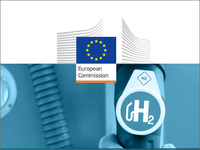 Not in my backyard: Acceptance of renewable energies Not in my backyard: Acceptance of renewable energiesWhy do local measures for the German energy transition meet resistance, despite great general approval? Findings by scientists of ITAS and TU Berlin have now been selected and disseminated as a policy brief by the European Commission. more |
 Study: Consequences of the corona pandemic Study: Consequences of the corona pandemicWhich long-term consequences will the corona pandemic and the measures we are taking to counter it have for our society? In an ITAS project, experts on future issues were asked to evaluate 21 theses. The first interim results are now available. more |
 Project on dealing with deepfakes Project on dealing with deepfakesMedia contents manipulated with artificial intelligence are a threat to individuals, companies, and our democracy. On behalf of the European Parliament, researchers are investigating how politics and society can counter the phenomenon of “deepfakes”. more |
 Online symposium: Future of 3D printing Online symposium: Future of 3D printingInternational experts on 3D printing from the humanities and social sciences will meet in March 2021 to discuss how society can use the technology. The ITAS Vision Assessment team will organize the symposium. more |
 Theme evening “Back to the technology future“ Theme evening “Back to the technology future“What do we know today about the future consequences of technologies? On 17. November 2020, scientists will take the guests of “technik.kontrovers“ on a journey through a quarter century of technology assessment in Karlsruhe. more |
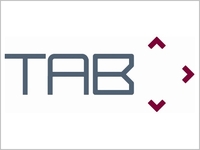 Public discussion “Autonomous Weapon Systems” Public discussion “Autonomous Weapon Systems”On the occasion of the new TAB study “Autonomous Weapon Systems”, scientists will comment on the state of technical development, ethical aspects and political questions during a public expert discussion on 04.11.20. |
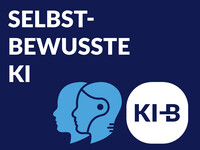 Podcast series “Self-Conscious AI” launched Podcast series “Self-Conscious AI” launchedCan artificial intelligence develop consciousness? How would it work and what effects would it have? ITAS researcher Karsten Wendland goes in search of answers in the podcast, holding exciting weekly discussions with experts. more |
 Medicine and health: New project on data use Medicine and health: New project on data useDigital health technologies generate “data treasures”, but their use raises ethical, legal, and social questions. ITAS will pursue these questions in cooperation with the University of Freiburg. In July, the project partners met for the kick-off event. more |
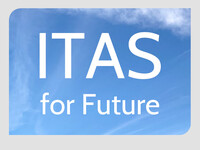 Online event: ITAS for Future Online event: ITAS for FutureOn 24 September 2020, the ITAS will be open to pupils, students, and those interested in its work. They are invited to find out more about approaches for better climate protection and more sustainability and discuss these topics with researchers. more |
 Sustainable mobility: Fuels from renewable sources Sustainable mobility: Fuels from renewable sourcesSynthetic fuels from Power-to-X processes could make a valuable contribution to the energy and transport transition. In his doctoral project, Manuel Andresh examines how to design and use the technology as sustainably as possible. more |
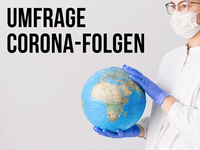 Survey: Consequences of the corona pandemic Survey: Consequences of the corona pandemicWhat are the long-term social consequences of the corona crisis? How will everyday life change, and where should policy intervene? ITAS researchers have put theses up for debate that can be evaluated in an online survey. more |
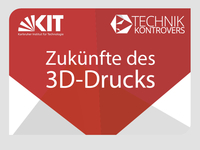 Thematic evening “Zukünfte des 3D-Drucks” Thematic evening “Zukünfte des 3D-Drucks”Do we print the world as we like it? This is the motto of a digital theme evening in the "technik.kontrovers" series on Tuesday, 21 July 2020, where scientists will discuss the present, future and the social dimension of 3D printing. more |
 AI development: Focus on people AI development: Focus on peopleArtificial intelligence should help to improve our lives in many different areas. But how do we ensure that society actually benefits from these systems? This question is now in the focus of a dissertation project at ITAS. more |
 Geothermal energy for KIT Campus Geothermal energy for KIT CampusIt’s hot beneath KIT’s Campus North. At a depth of only three kilometers, the temperature is about 170°C. The GECKO project investigates how this potential can be used for the transition of the heating sector while also considering societal concerns. more |
 Forest management: Resilience to fires Forest management: Resilience to firesMore frequent droughts can lead to an increase in the number of forest fires in Germany. Together with other KIT institutes, ITAS wants to contribute to a better understanding of their dynamics and to making the forest more resistant. more |
 World without cash - changes in the classic banking and payment systems World without cash - changes in the classic banking and payment systemsThe interim results of the short study “World without Cash” on current trends and developments in the payment traffic ecosystem will be discussed with experts in a public expert meeting. |
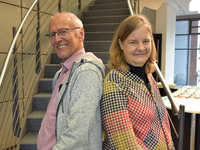 Final repository search: Head of ITAS takes over chair of Support Body Final repository search: Head of ITAS takes over chair of Support BodyArmin Grunwald is the new co-chairman of the National Support Body for the search for a final nuclear waste repository. During the inaugural meeting, Grunwald explained that the body has to play a proactive role in the selection process in the future. more |
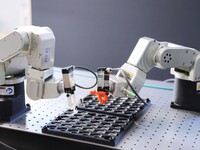 Roadmap for the battery research of the future Roadmap for the battery research of the futureOn the way to a climate-friendly society, the demand for innovative battery storage systems increases. The European research initiative BATTERY 2030+ has presented a roadmap for new concepts. Researchers from ITAS are also involved. more |
 Climate change: Carbon dioxide as a sustainable raw material Climate change: Carbon dioxide as a sustainable raw materialHow sustainable are different approaches to use carbon dioxide as raw material instead of emitting it into the atmosphere? An ITAS team deals with this question in two projects funded by the German Federal Ministry of Education and Research (BMBF). more |
 Ethics label developed for AI systems Ethics label developed for AI systemsThe discussion on how algorithms can be designed ethically is making great progress. But how to apply the guidelines in practice? This question is the subject of a new study involving ITAS researchers. more |
 Society and technology: consequences of the corona pandemic Society and technology: consequences of the corona pandemicDigital technologies are a great help, but cannot replace analogue communication in the long term, says head of ITAS Armin Grunwald. At the same time, it is important to make us more aware of our dependence on technologies and economic processes. more |
 Presentation of TAB activities in the 19th legislative period Presentation of TAB activities in the 19th legislative periodThe work of TAB was on the agenda of the Committee on Education, Research and Technology Assessment of the German Bundestag. more |
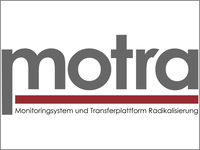 Technology monitoring: Preventing extremism Technology monitoring: Preventing extremismWhat is the potential of new IT and communication technologies with regard to radicalization processes? In the BMBF project MOTRA, ITAS deals with innovation dynamics and examines their side effects and ethical aspects. more |
 Thematic evening “Zukünfte des 3D-Drucks” Thematic evening “Zukünfte des 3D-Drucks”Do we print the world as we like it? With this motto, scientists will discuss the present, future and the social dimension of 3D printing with the guests of the “technik.kontrovers” series on Wednesday, 11 March 2020. more |
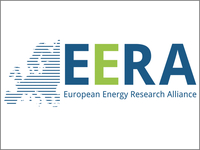 Transforming the European energy system Transforming the European energy systemHow can the EU implement its climate targets without losing sight of social, economic, and environmental objectives? Indicators developed by ITAS in the EU project SUPEERA are intended to provide orientation in the evaluation of energy policies. more |
 Type 1 diabetes: “citizen scientists” wanted Type 1 diabetes: “citizen scientists” wantedIn the TeQfor1 project, researchers at ITAS are investigating the effects of open source technologies for automated insulin delivery on the quality of life of people with type 1 diabetes. The project is looking for people using such systems. more |
 International Summer School on Open Science International Summer School on Open ScienceThis year’s ITAS Summer School in San Sebastián deals with the ambivalences of “open science” in times of social and scientific change. PhD students are welcome to apply until 15 March 2020. more |
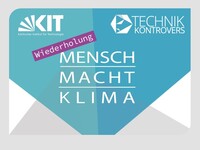 Thematic evening “Mensch | Macht | Klima” Thematic evening “Mensch | Macht | Klima”How climate protection works in everyday live is hotly debated. For the second time, on Tuesday, 18. February 2020, the series technik.kontrovers at ITAS offers food for thought for making a personal contribution to climate protection. more |
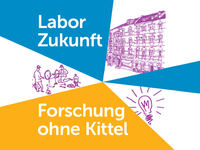 District Future launches podcast District Future launches podcastOn 28 January 2020, the podcast „Labor Zukunft – Forschung ohne Kittel“ started on Campusradio Karlsruhe. Every two months, it now provides insights into real-world lab research and practice for a good and sustainable life in Karlsruhe. more |
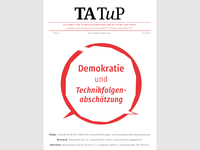 New TATuP issue “Democracy and Technology Assessment” New TATuP issue “Democracy and Technology Assessment”A close connection to democratic societies has always been a characteristic of technology assessment. So how should TA deal with the current crisis of democracy? The authors of the current TATuP are looking for answers. more |
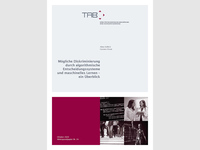 Possible discrimination by algorithmic decision systems and machine learning Possible discrimination by algorithmic decision systems and machine learningTAB examines this topic in the Hintergrundpapier Nr. 24, which uses four case studies to show that unequal treatment by algorithmic decision systems is often a continuation of “pre-digital” unequal treatment. |
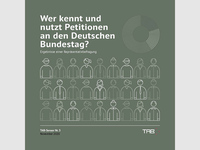 Petitions to the German Bundestag Petitions to the German BundestagWho knows and uses petitions to the German Bundestag? And how did people learn about the right to petition? The TAB-Sensor Nr. 3 approaches these core questions from the perspective of internet users resident in Germany. |
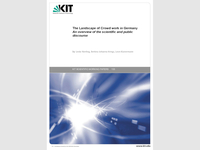 Crowd working in Germany Crowd working in GermanyFrom food delivery services to simple click jobs: online platforms have created an extremely flexible job market. An ITAS working paper analyzes this development and provides an overview of initiatives to represent crowd workers in Germany. more |
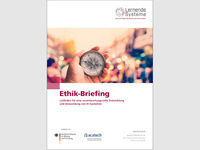 Ethics guide on artificial intelligence Ethics guide on artificial intelligenceHow can AI be designed and used in the interest of users? An important condition is that decisions of learning systems can be clearly understood in the future, says a team of authors including ITAS head Armin Grunwald. more |
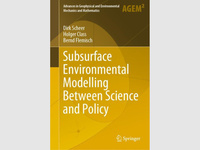 Subsurface environmental modelling between science and policy Subsurface environmental modelling between science and policyWhether for energy storage, CO2 storage, or geothermal energy – the earth’s subsurface can be used in a variety of ways. Researchers from Karlsruhe and Stuttgart show the role played by computer models and how they influence political decisions. more |
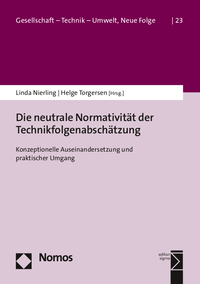 Normativity of technology assessment Normativity of technology assessmentIs TA committed to other factors besides impartial expertise and basic democratic values? How should its actors deal with normative claims? Researcher from the field are looking for answers in a new book. more |
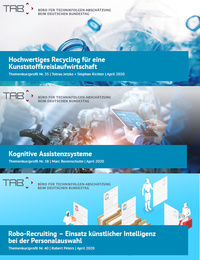 New short thematic profiles from TAB's Horizon-Scanning published New short thematic profiles from TAB's Horizon-Scanning publishedThe spectrum of topics ranges from technologies for more sustainable material cycles to the use of artificially intelligent assistants in the working world. |
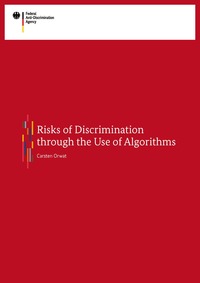 Algorithms: Study on discrimination risks translated Algorithms: Study on discrimination risks translatedIn a study for the German Federal Anti-Discrimination Agency ITAS researcher Carsten Orwat analysed “Risks of Discrimination through the Use of Algorithms”. To make the results internationally accessible the publication is now available in English. more |
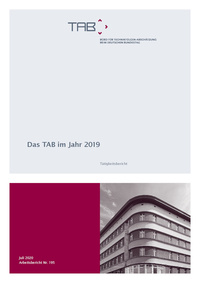 TAB activity report 2019 published TAB activity report 2019 publishedThe compact review of activities and research results of the Office of Technology Assessment at the German Bundestag is available online. more |
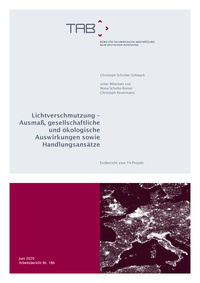 Causes, extent and effects of light pollution Causes, extent and effects of light pollutionThe TAB-Arbeitsbericht Nr. 186 summarizes the state of scientific knowledge regarding the extent and trends of light pollution and its effects. more |
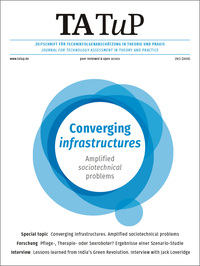 New TATuP issue on “Converging Infrastructures” New TATuP issue on “Converging Infrastructures”Digitalization allows networks for energy, mobility, and information to be linked ever more closely. How these “converging infrastructures” can be used for social transformation is addressed in the current TATuP. more |
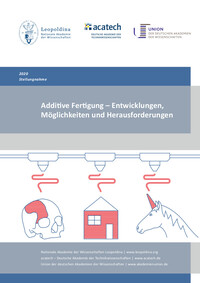 Paper on 3D printing: Technology assessment is needed Paper on 3D printing: Technology assessment is neededA statement by the German academies of science highlights research needs, potentials, and options for action in dealing with additive manufacturing processes. One of the authors is Rafaela Hillerbrand, professor of philosophy of technology at ITAS. more |
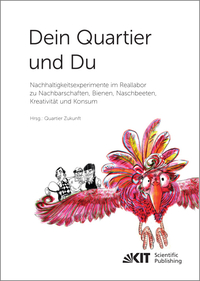 Real-world lab: Experimental book “Dein Quartier und Du” Real-world lab: Experimental book “Dein Quartier und Du”The ITAS real-world lab “District Future” presents a multi-perspective book about research, change, and approaches for a good future for all of us. It depicts the events surrounding the experiment series “Your SustainabilityExperiment”. more |
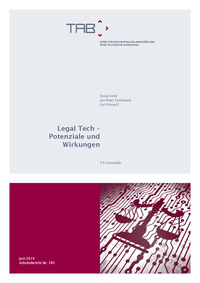 Legal Tech - Potentials and applications of technology-based legal advice Legal Tech - Potentials and applications of technology-based legal adviceTAB-Arbeitsbericht Nr. 185 deals with the use of technologies in legal advice, ranging from simple, platform-based support to partially or fully automated solutions. more |
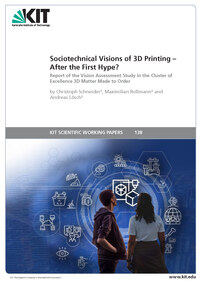 Vision assessment on 3D printing Vision assessment on 3D printingWhat visionary narratives and technology futures are associated with 3D printing technologies? The first report of the ITAS vision assessment team in the Cluster of Excellence “3D Matter Made to Order” explores this empirical question. more |
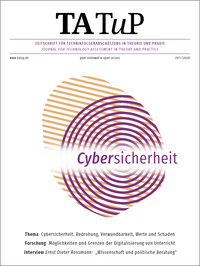 New TATuP issue on “Cybersecurity” New TATuP issue on “Cybersecurity”Modern societies depend on digital infrastructures and have to defend themselves against cyberattacks. The Special Topic of the current TATuP issue deals with the possibilities and risks of the employed technologies. more |
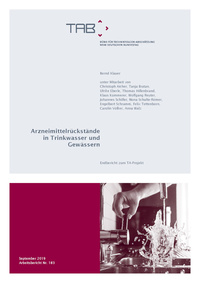 Pharmaceutical residues in drinking water and water bodies Pharmaceutical residues in drinking water and water bodiesAgainst the background of increasing consumption of pharmaceuticals, TAB presents in its Arbeitsbericht No. 183 a concentrated overview of the state of knowledge on quantities, qualities and effects of micropollutants on humans and the environment. more |
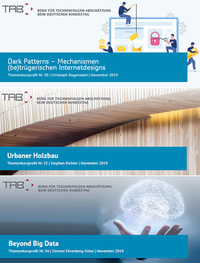 From “Dark Patterns” to “Beyond Big Data” From “Dark Patterns” to “Beyond Big Data”Five new short thematic profiles from TAB's Horizon Scanning offer condensed information on current scientific and technological trends and socio-economic developments in early stages of development. |

